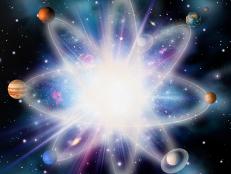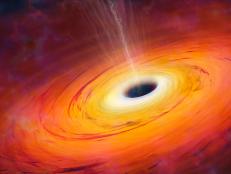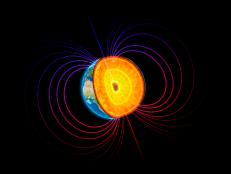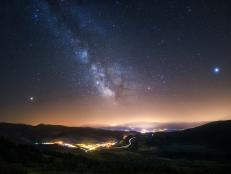All Science Articles
Showing 121 - 135 of 341 results
Raindrop Electricity: Generating 'Blue Energy' from Rainfall
Water-power has been used for thousands of years as a renewable energy source, so what are we doing today to make rain water work for us?
Tornado Science: Predicting The Whirlwind
Tornadoes, wild rotating vortexes of high-speed winds, are among the most feared of nature’s destructive storm forces. Researchers are working tirelessly to predict these storms with better early-warning systems.
2 Storms, 1 Coastline, Hurricane Season Continues
Topical Depression Marco and Tropical Storm Laura started out on a smilar path, but as the days progress so do the storms.
Wildfire Challenge: Growing Investment in Firefighting Technology
Tackling rapid and destructive wildfires before they can spread over wide areas is one of the most pressing challenges for firefighters today.
Hurricane Prediction: The Forecasting Science that Saves Lives
Hurricane season is a fearful and anxious time of year for many people. Tropical cyclones and storms occur in a geographical belt affecting mostly US coastal states, but the physical and financial destruction they cause mean that science must improve constantly to minimize their effects on society.
Spider Silk: Wonder Material Used to Heal the Human Body
Spider silk is one of nature's wonder materials, more flexible than nylon, thinner than a human hair, and, for its weight, stronger than steel. Webs and nests are spun from this incredible natural protein and spiders use thin threads to glide through the air and escape from predators. Now science is looking to exploit silk's properties as a way to deliver medicines and heal our bodies.
The 2020 Planetary Primaries
What’s your favorite planet? Before you decide, here are some key facts about each of the candidates.
See Comet NEOWISE Before it Disappears
Discovered in late March, Comet NEOWISE has shown itself in the skies all over the world. Dr. David Schleicher, Senior Astronomer at Lowell Observatory gives us some details about this cool comet gracing the night skies.
Red Rover, Red Rover, Send Perseverance Right Over
A few years ago, after the successful deployment of the Curiosity rover on Mars, the folks at NASA envisioned a bold new plan to send another mission to the red planet. The mission was scheduled to depart in the then-futuristic year of 2020.
Too Big to be a Neutron Star, Too Small to be a Black Hole. What Am I?
Okay, stars die in all sorts of interesting and cosmically expressive ways (except the red dwarf stars, who just sort of…stop).
Clean Air Tech and Pollution Reduction Post-COVID
One of the unintended positive consequences of the coronavirus pandemic is a reduction in air pollution.
Something Funky is Happening to the Earth’s Magnetic Field
Recently a weak spot in the Earth's magnetic field over the southern Atlantic Ocean has been getting weaker, which could signal the beginnings of a global magnetic reversal event. Or not. It’s complicated.
Emotional Robots: Machines that Recognize Human Feelings
Bridging the gap between simple automation and robots that can empathize and interact with humans naturally is a big challenge, but major progress has been made in the past few years.
July in the Sky: Celestial Events Happening This Month
With eclipses, meteor showers, and more, it's a busy month in the night sky this July. Take some time this summer to look up and enjoy these cosmic wonders.
NASA Astronauts Take on Two Spacewalks at the International Space Station
Updated July 1, 2020 Six Days. Two spacewalks. Both Successful.


























